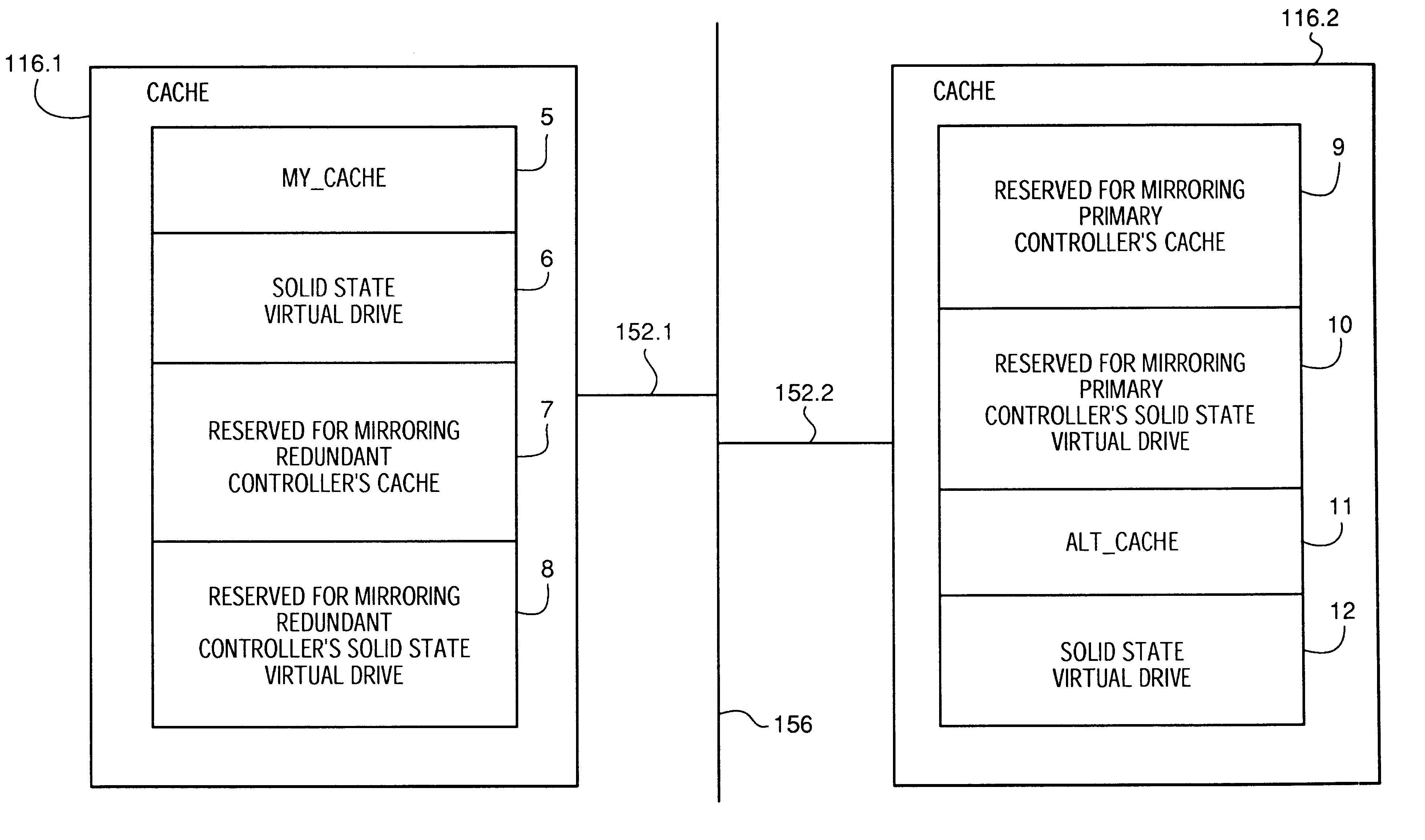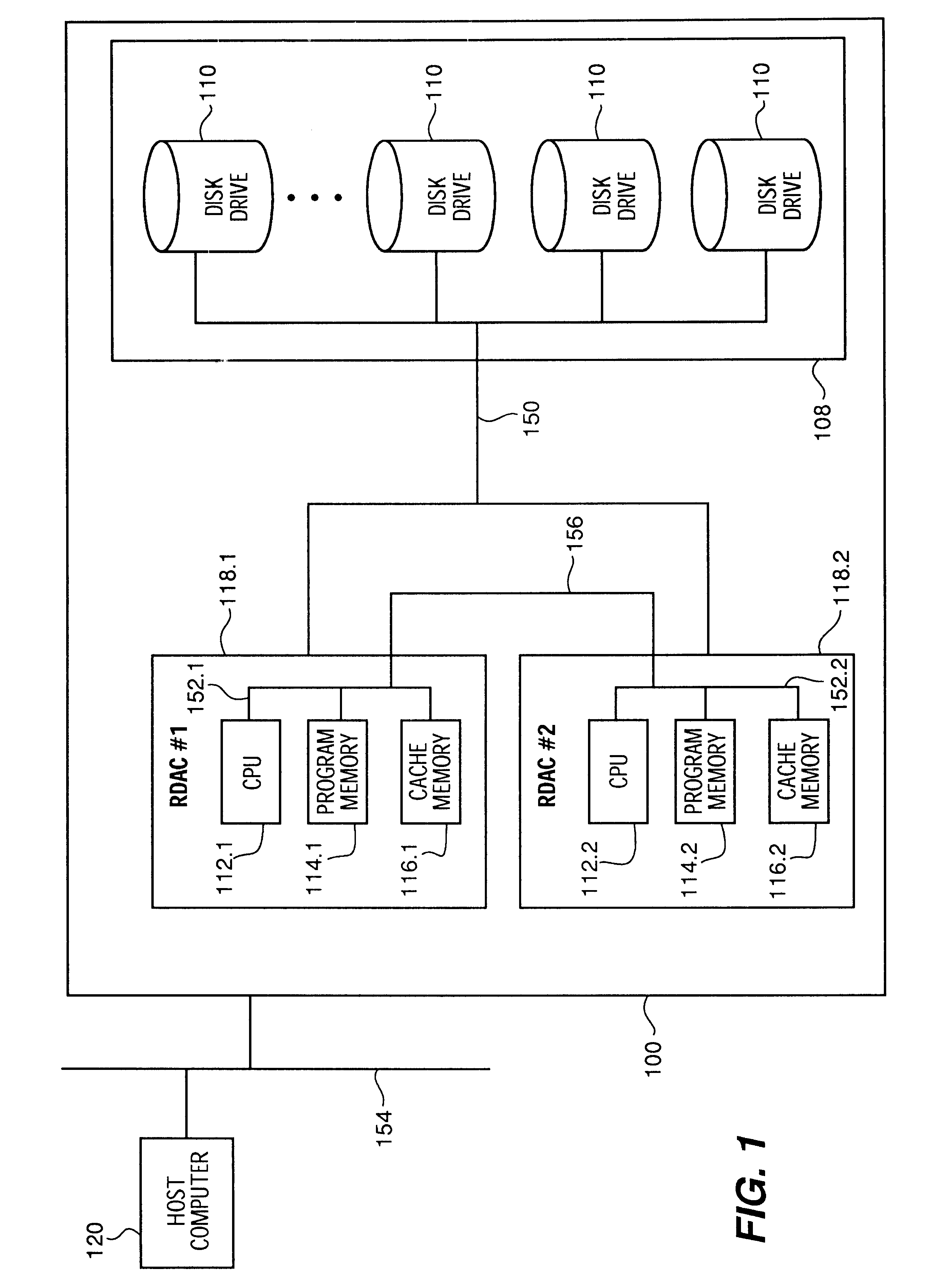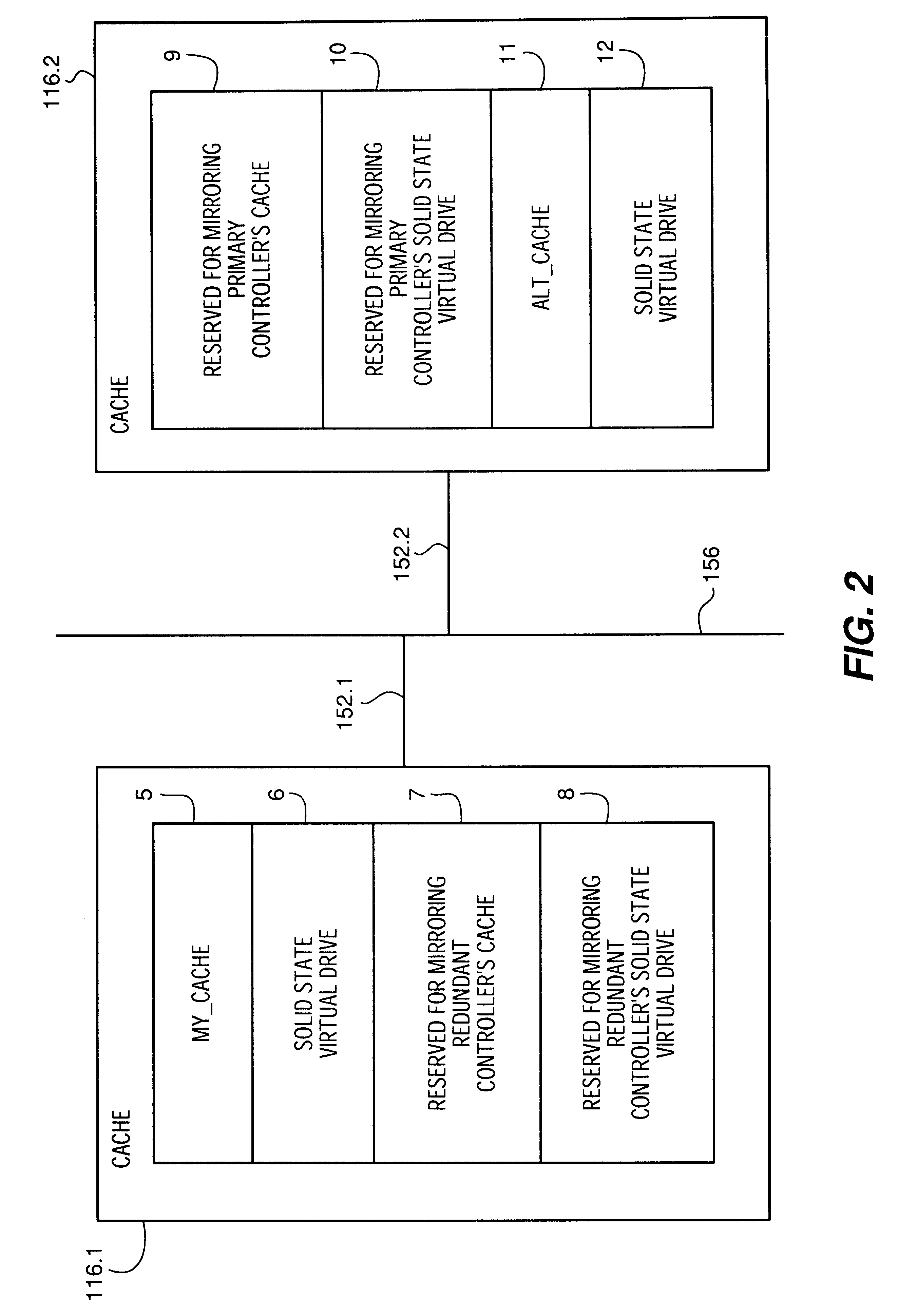Apparatus and method to provide virtual solid state disk in cache memory in a storage controller
- Summary
- Abstract
- Description
- Claims
- Application Information
AI Technical Summary
Benefits of technology
Problems solved by technology
Method used
Image
Examples
first embodiment
In the present invention, the primary controller configures at least one virtual solid state disk 6 within cache memory 116.1. The redundant controller similarly defines at least one virtual solid state disk 12 within cache memory 116.2. In this embodiment, the controller utilizes the virtual solid state disk 6 as a private disk storage unit. That is, the controller rather than the host utilizes the virtual solid state disk 6 to store information for faster access than otherwise possible when the information is stored on disk. Such information stored on disk includes but is not limited to disk array configuration information or block mapping information. Alternatively, the virtual solid state disk 6 may be utilized to store temporary information such as intermediate computation results that would otherwise be stored in scratch pad memory.
Though caching and logging provide some relief from the RAID write penalty by deferring the imposition thereof, they do so at the cost of added com...
second embodiment
In the present invention, a hybrid virtual LUN is configured as one or more virtual solid state disks 6 operating in conjunction with one or more physical disks in the disk array. In this embodiment, the controller manages the virtual LUN in accordance with any of the RAID 1, 2, 3, 4, 5, or 6 levels. The hybrid virtual LUN is operable to mirror data utilizing RAID level 1 techniques, or to store data or parity utilizing any of the RAID levels 2, 3, 4, 5, or 6.
The hybrid virtual LUN is used in conjunction with a RAID level 2, 3, 4, 5, or 6 mapping to provide write performance that is close to the performance of a RAID 0 write. By using the virtual LUN to store parity information, the present invention provides the RAID controller the ability to attain very high data transfer capacity and I / O request rates by reducing the number of accesses to disk.
RAID level 0, unlike other RAID techniques, does not perform any data redundancy to protect against a disk failure. Rather, RAID level 0 m...
third embodiment
FIG. 3 shows the present invention. In this embodiment, the controller configures one or more virtual solid state disks as a high-speed virtual LUN. In this embodiment, the virtual LUN is utilized to store host data for faster access than otherwise possible when the information is stored on disk.
Cache memory 116.1 contains a virtual solid state disk storage device 22 logically defined as virtual LUN X 22 (also referred herein as virtual solid state disk storage device 22). LUN X 22 is within a section of the battery-backed cache memory 116.1 in RDAC 1118.1. Since the LUN X 22 is configured in battery-backed cache memory 116.1 it is essentially non-volatile and will not lose data during power interruptions. LUN X 22 and LUN Y 34 can be defined as any RAID level when LUN X 22 or LUN Y 34 are operating alone as one virtual LUN (e.g., not in conjunction with disks 110 as implemented in the second embodiment).
As previously discussed, additional data reliability is available by using RDAC...
PUM
 Login to View More
Login to View More Abstract
Description
Claims
Application Information
 Login to View More
Login to View More - R&D
- Intellectual Property
- Life Sciences
- Materials
- Tech Scout
- Unparalleled Data Quality
- Higher Quality Content
- 60% Fewer Hallucinations
Browse by: Latest US Patents, China's latest patents, Technical Efficacy Thesaurus, Application Domain, Technology Topic, Popular Technical Reports.
© 2025 PatSnap. All rights reserved.Legal|Privacy policy|Modern Slavery Act Transparency Statement|Sitemap|About US| Contact US: help@patsnap.com



